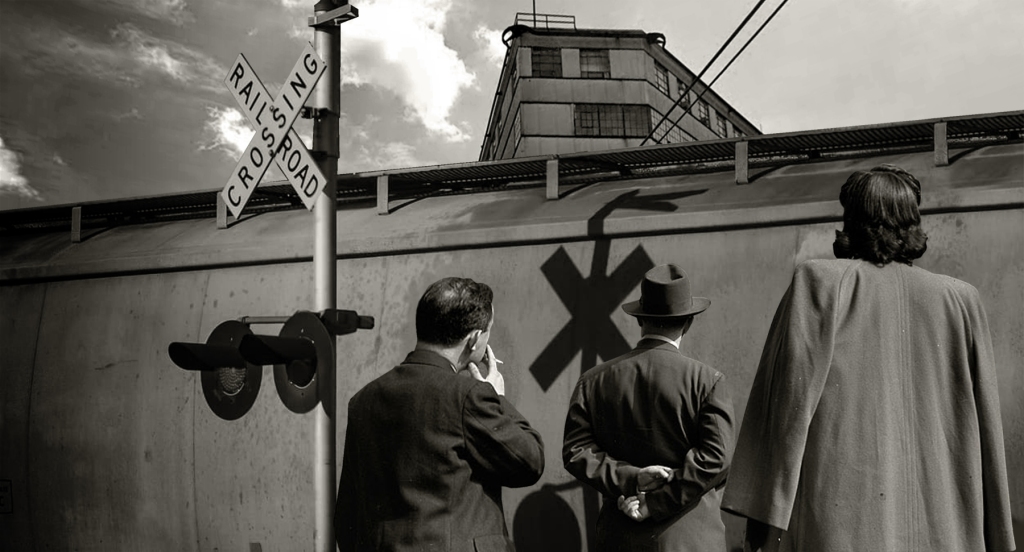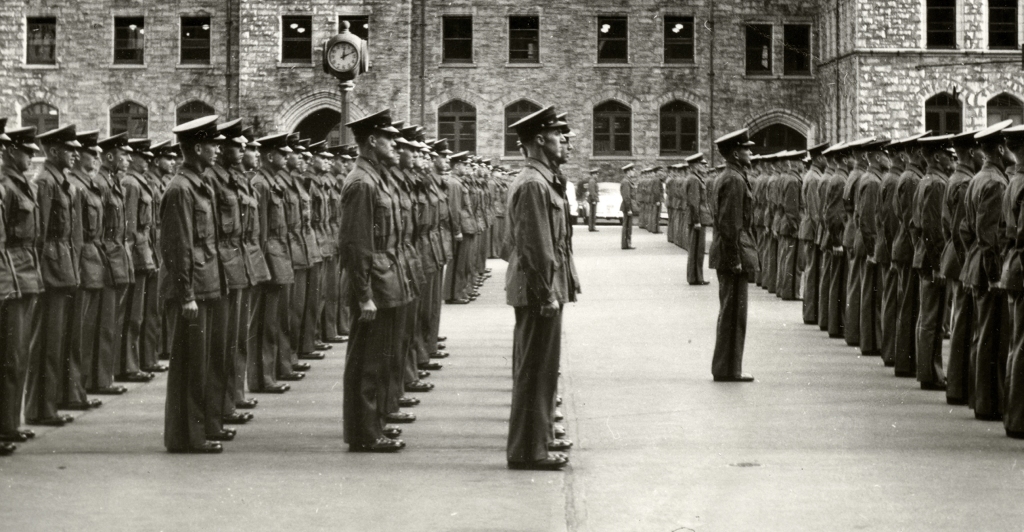
So if you are just walking in on this story let me bring you up to speed: a young man from Mansfield was a cadet at the U.S. Military Academy at West Point, signed out one evening to go to a restaurant on the grounds, and vanished into thin air. He never signed back in, which triggered one of the biggest manhunts in U.S. history.
Look up the most famous missing persons cases of the 20th century and you find Amelia Earhart, Jimmy Hoffa, Richard Colvin Cox of Mansfield, Ohio.
All of this happened in 1950—he was Senior High Class of ’46—and if he is still alive today Dick Cox would be in his 90s. No one really knows. Well, somebody knows and that’s what this is about.
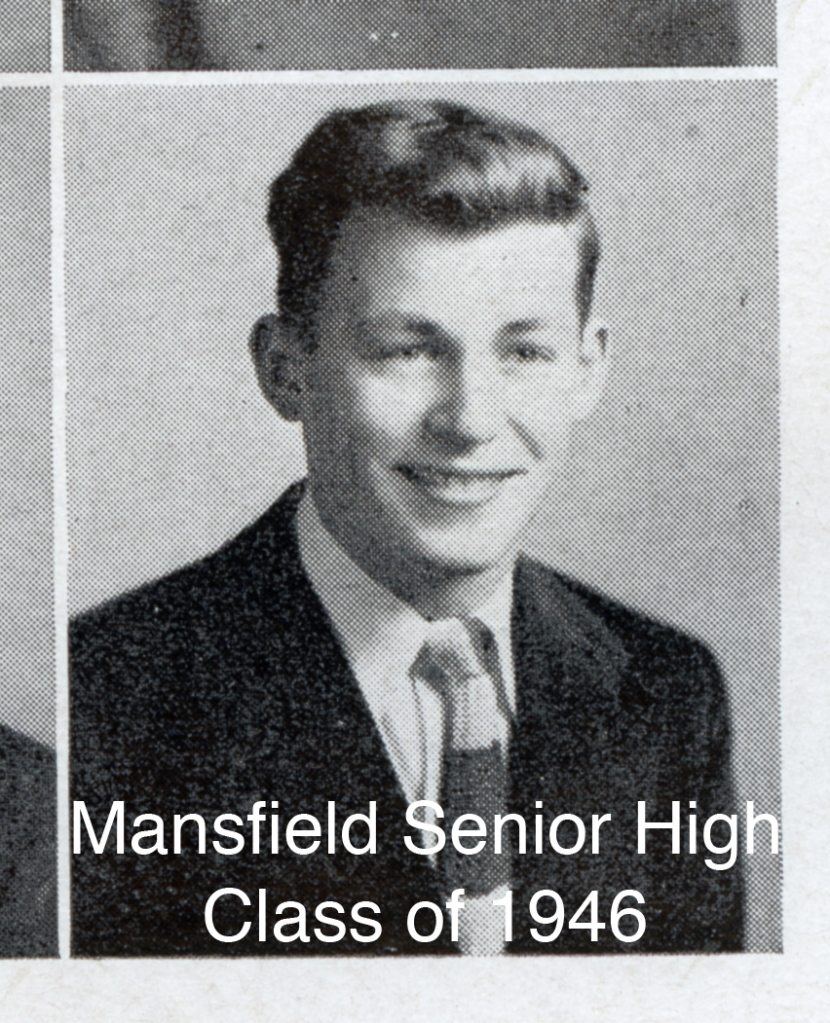
Accumulating Intel
During the first years of the Cox disappearance—while he would be presumed alive and absent-without-leave—the FBI, the CID, and the newly organized CIA, conducted an all-out nationwide search. Even after the seven-year deadline, when he could be officially declared dead, the investigation lived on.
Naturally a systematic fine-tooth dragnet like that incurred a ton of paperwork in a number of government divisions. For 15 years the agencies were quite secretive about their findings and theories, not only because they were pursuing delicate leads, but also because it was something of an embarrassment to them that after spending all that massive effort they still had nothing to show. Friends and family in Mansfield who wanted answers just got a runaround, and the Feds weren’t saying anything.
But in 1966 the rules changed when the Freedom of Information Act was instituted. Suddenly the Cox files were public property.
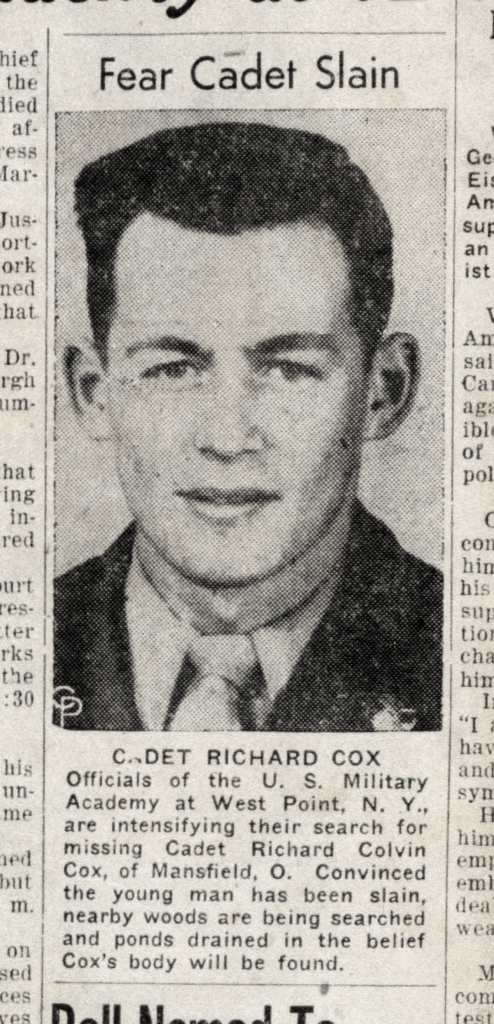
The Cox Files
Within a couple decades of the Cox disappearance one of his Mansfield friends had become the Richland County Prosecutor, presumably with access to investigative reports. William F. McKee had been a schoolmate of Dick Cox, and the two of them had spent casual hours together both during and following their high school years.
In the law enforcement business McKee had proven himself coming up through the legal system, and he was well known and highly respected by the FBI. They had friendly, mutual cooperation on many cases of all levels—local and statewide. So when he was in the Ohio office of the FBI one day, and mentioned in an offhand manner to the Agent in Charge that he wanted to see the Cox file, he was hardly prepared for the response he got.
The Agent in Charge tried to play it off casually, but he visibly turned pale as his eyes darted around in desperation, scrambling for an excuse to stall the request. McKee was impressed…and he wasn’t too surprised when the files failed to materialize. This was about 1969.
Cox File Redux
About five years later Prosecutor McKee had occasion to send an assistant up to the FBI office for an extradition, and he asked the young attorney to speak with the Agent in Charge. “Tell him to get me the files on Dick Cox.”
Later the assistant reported that he had “never seen anything like it.” The FBI agent had been calm, professional, ordinary, until the young attorney brought up the Cox File. “Then he turned white and started shaking.” Needless to say McKee never did see the files, and it was clear enough that somebody up in the hierarchy knew something that they didn’t want to talk about.
The Files Arrive
A few years down the road in 1982—after the whole process of obtaining secret files from the government had gone through the wringer of Watergate, the Pentagon Papers and other similar 1970s high profile national scandals involving obstruction of information—the procedure wasn’t so unusually difficult. An investigative reporter for the News Journal—presumably with the arm-twisting power of the press behind him—was finally able to land the files in Mansfield.
When the files arrived they were heavily censored with black-line redactions all over them, and missing 165 pages. It was a conspiracy-theorist’s bonanza.
Theoretically
There are some excellent published investigations on the Cox missing-persons case, the most incisive of which originated in Mansfield with the Jim Underwood/ Mansfield News Journal story of 1982. Theories of what became of him run an entire spectrum—officially and unofficially—from why he may have been murdered, to why the government wanted to hush up his alleged anti-communist secret spy activities. It is all fascinating material that could spawn several riveting episodes of the Twilight Zone.
If he died in 1950 when he disappeared, the story involves a relatively mundane sequence of forensic mysteries that narrow in significance as the years go by. But if he lived, it throws wide the doors of speculation and imagination.
Growing up in Mansfield, and having known and met many, many people through the years who knew Dick Cox, I have heard a lot of theories. I always ask folks what they believe happened to him. An enumeration of theories accompanies this article, in the form of 1950s-type tabloids, adventure magazines, comic books and other suitably appropriate fiction or non-fiction media.
The Unstated
Understandably, the possibility that Cox became a CIA operative is not something family and friends want to hear: it salves their broken hearts only to believe that he was killed and had no way to say goodbye.
Yet, we all can trust that if Dick went on to a secret life, he did so knowing the price to be paid by all who loved him.
If he was raised to love his country, if he was raised with values recognizing that in times of crisis the needs and survival of the nation take precedence over the emotions of one individual or one family or one community, then his metamorphosis from beloved family member into anonymous national servant should be seen as a valiant and noble sacrifice, and the suffering of his family and friends as simply the price of freedom.
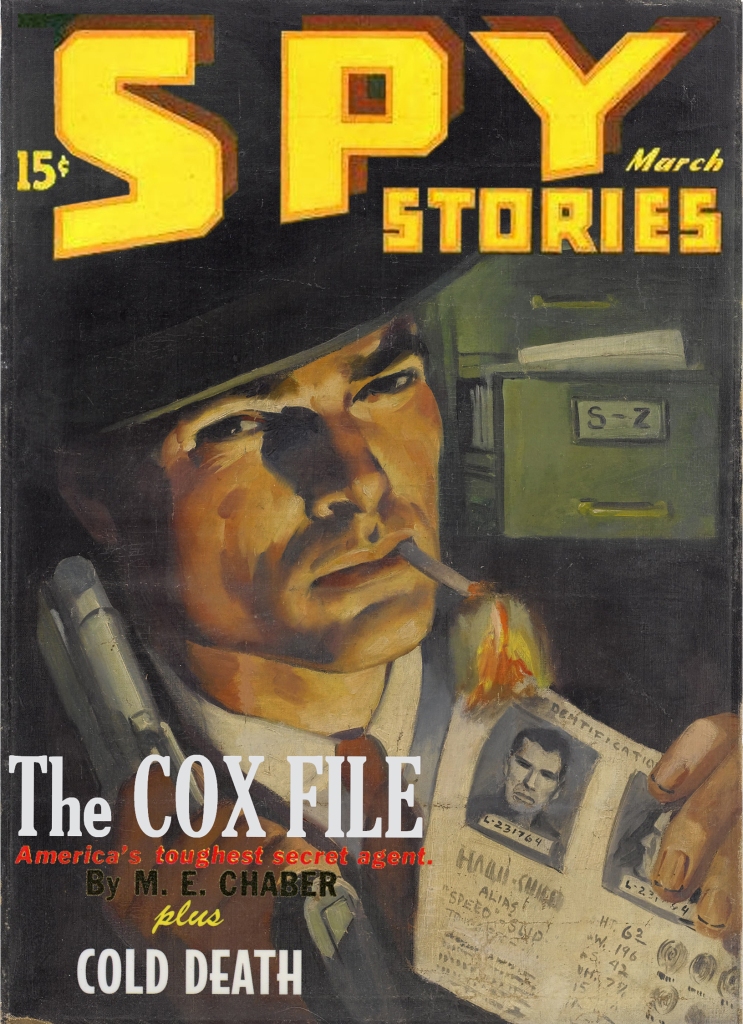
Cox had done his tour of duty for the US Army in Germany near the communist border, so it was not a great leap to assume the CIA might find him a valuable asset behind the Iron Curtain…especially since he was studying Russian at West Point, and was widely regarded as being top of his class in leadership potential.
Some theories placed him smuggling Cold War scientists out from behind communist lines.
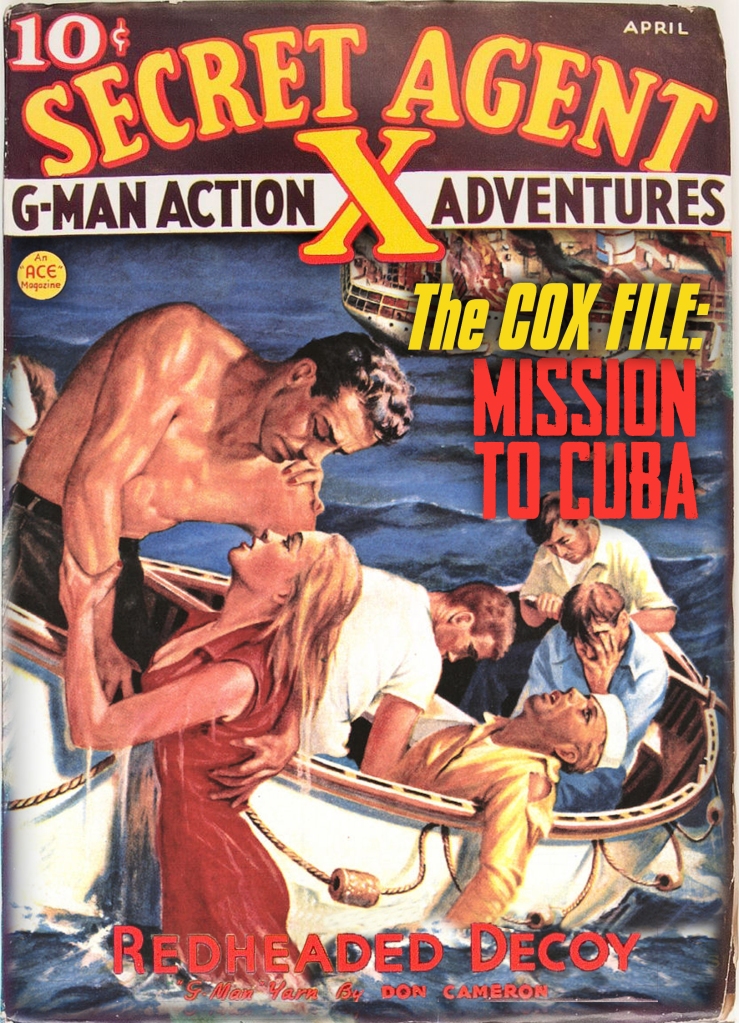
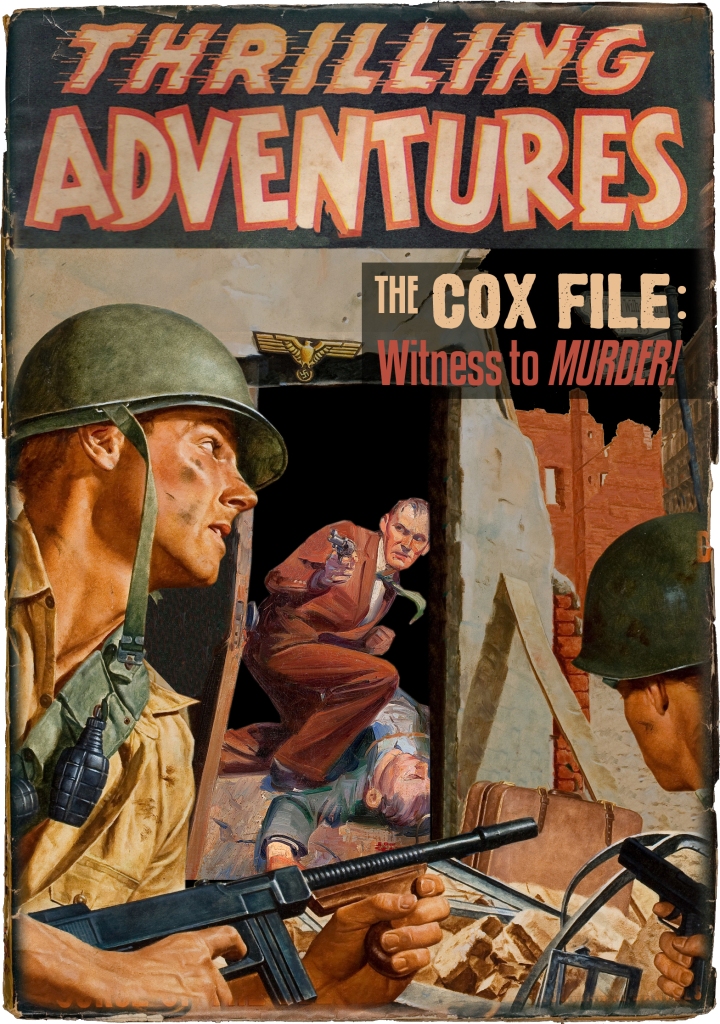
During the investigation of his disappearance rumors surfaced about a murder he had witnessed in Germany, and a trial where he had testified.
Theoretically he could have been murdered by the vengeful recently-released criminal. Or he could have been involved in or witnessed Black Market activities that made him powerful enemies who needed to eliminate witnesses.
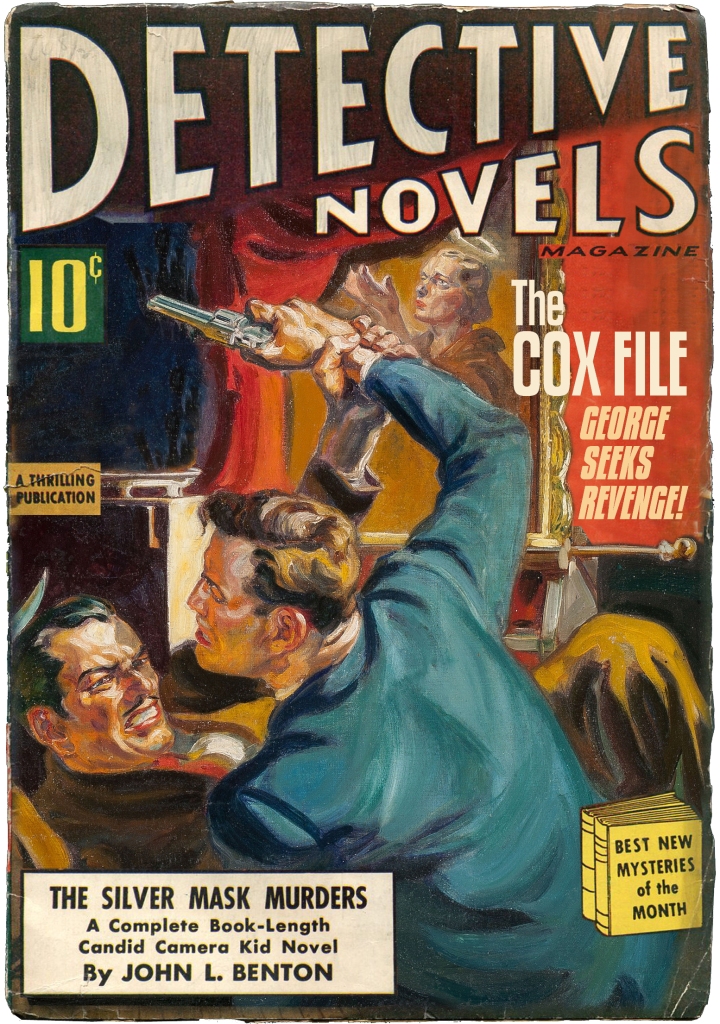
Theory has it that 1) “George” killed Dick Cox for any number of reasons, or 2) Cox killed “George” and then made an escape in his car.
Alternately, instead of “George” sinking Cox in the Hudson River, he could possibly have been the CIA recruiter who spirited Cox away to a new life.
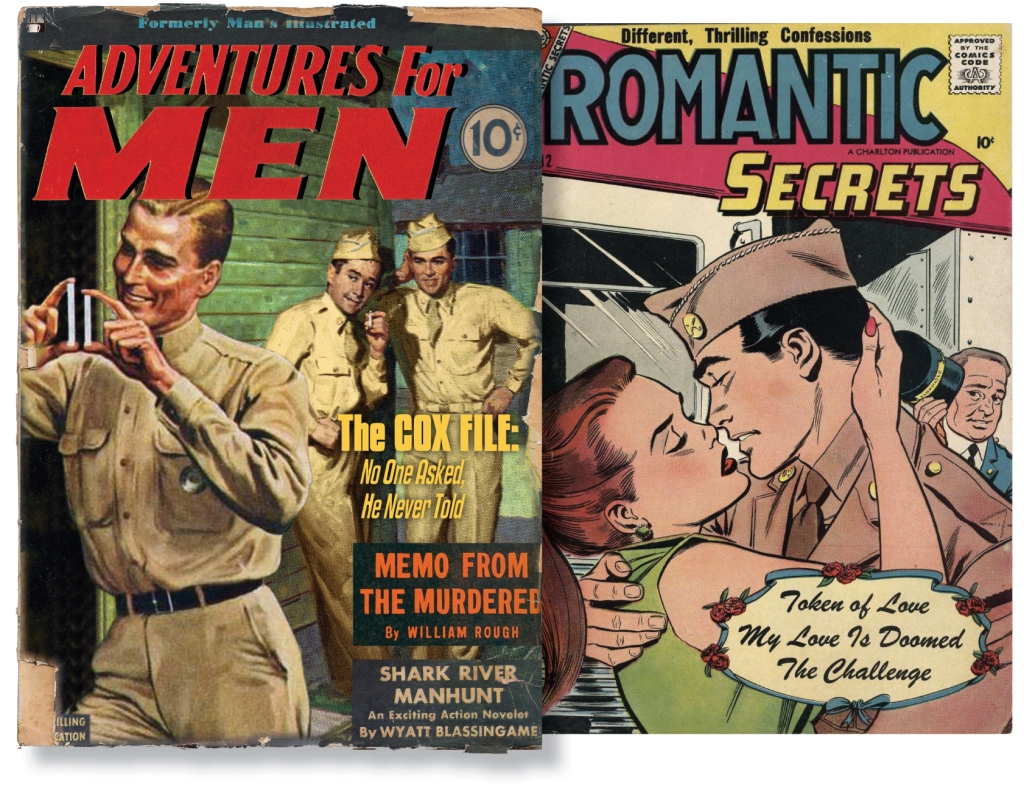
Some think that the mysterious “George” was in love with Cox from Army days, and either kidnapped or killed him; or that Cox propositioned “George” and a fight ensued that had unfortunately fatal consequences for one or the other of them.
Alternately, there are those who believe he fell in love with a woman who was not the one he was engaged to. He may have met her in Germany, or on a nearby campus, or on an excursion to NYC. They were sighted eloping near Mt. Gilead, but it turned out to be someone else.
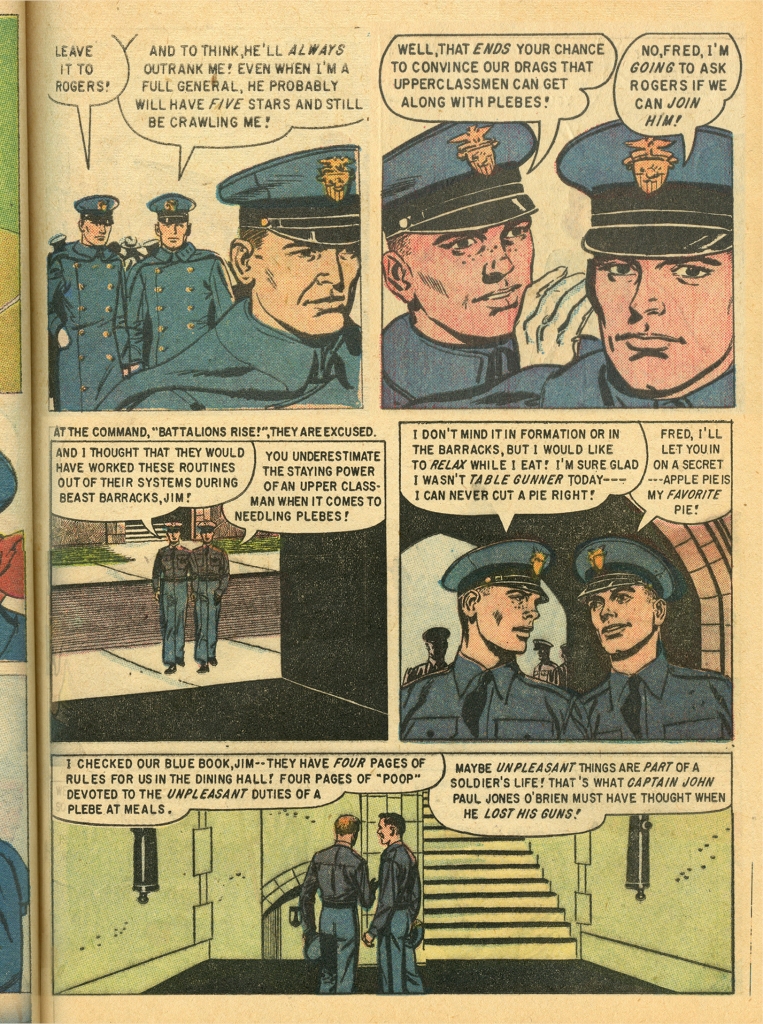
The theories suggested that Cox either 1) ratted on the cheaters and paid for it with his life; or 2) knew he was about to get caught in the scandal and ducked out before he could bring disgrace upon himself and his family.
Though the grounds of West Point had been searched inch by inch, the pond drained, and the river dredged, still some years afterward when a rumor surfaced that a body was found in a tunnel underneath the campus everyone was quick to assume that Cox had finally been found.
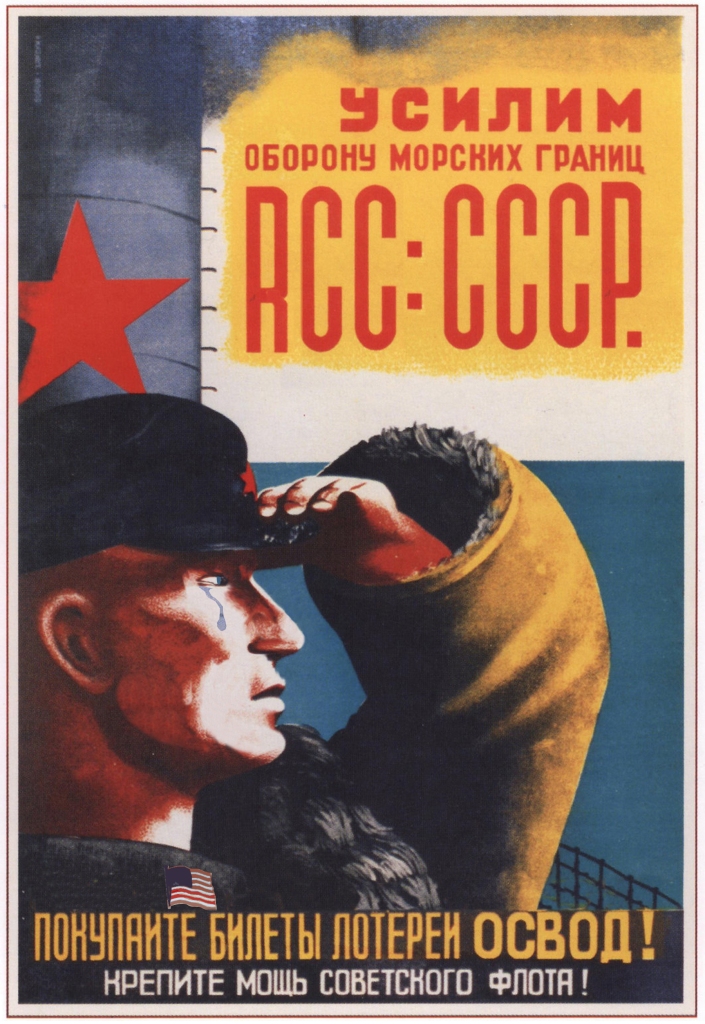
1) He was kidnapped, shipped to the USSR aboard a Polish freighter and imprisoned at a gulag above the Arctic circle; or 2) he was kidnapped, brainwashed, and turned into a double agent in the US to spy for the Russians.
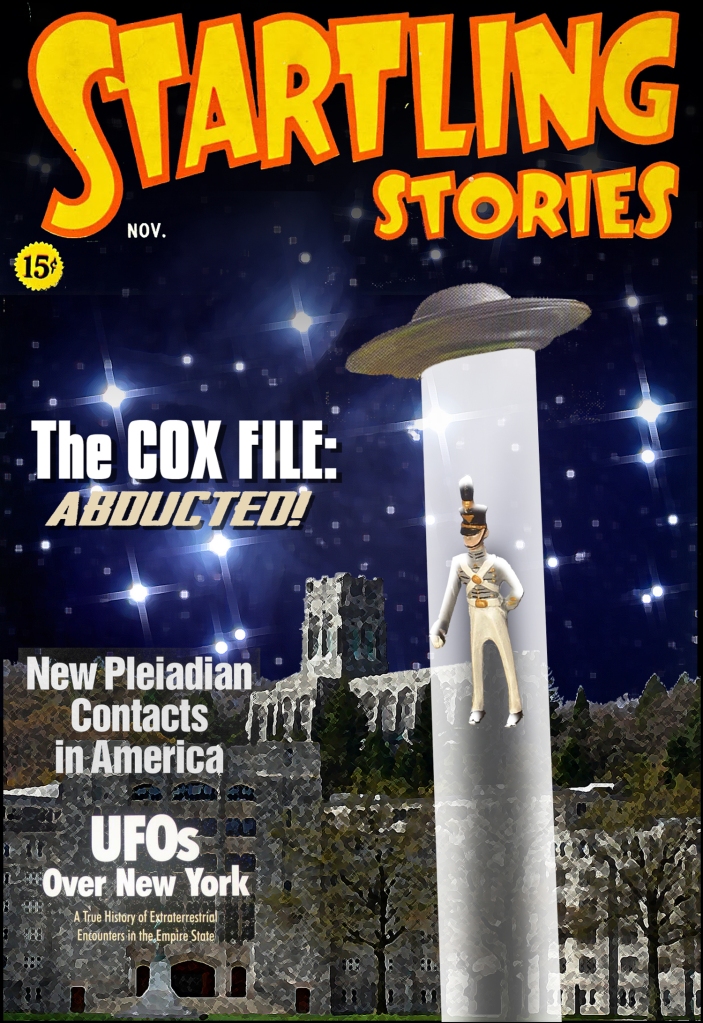
He may still show up someday, having aged not a day since 1950.
POST SCRIPT 2021: The Story That Can Now Be Told
I actually heard this story from someone else, but later when I had the opportunity to meet Ursula I questioned if what I heard about her was true.
She was glad enough to tell me about it, but asked, apologetically, if I would refrain from making it public, at least until after she was gone. Even though nearly 60 years had passed since the event, she still worried it may be a matter of national security and didn’t want to put Dick Cox at risk. She figured if she was gone, then he would be too, because they had been in school together.
It’s been at least ten years since our conversation, and it had all slid out of my mind until this afternoon when it suddenly occurred to me I needed to check the obits. I see where she departed this world last year.
So I am pleased to be able to finally add this piece of evidence to the collective memory file with the blessing of an actual witness.
Ursula was working at Westinghouse when Richard Cox vanished from West Point, and of course, she had heard all the distressing news because it was all anybody talked about in town.
One day, about a week after his disappearance, she left Westinghouse for lunch at a little diner on Fourth St. a few blocks west of the tracks. As she was returning to work, coming east on Fourth, she saw Dick Cox on the other side of the railroad bed making his way north, walking a cinder path beside the tracks.
There was no question it was him, she recognized him immediately simply by the way he walked.
She assumed he had just disembarked at Union Station and was heading uptown, and she was relieved to know that the whole “missing and perhaps murdered” rumors were not true after all. He must have been headed home, as he was pointed north…though, in retrospect, it did seem odd to her that he wasn’t walking on a street.
He had nearly reached the Fourth Street crossing about the same time she did, but a train came through just then and she had to wait for it to pass. Just before the train blocked her view, though, she caught his eye and waved, and he smiled an acknowledgement to her.
As she waited for the train to pass, she was greatly relieved to know he was all right after all, and as the train slowed to a standstill for a few seconds she was anxious to talk with him.
But just a couple minutes later, when the end of the train cleared out of the intersection, Dick was gone. She looked down the tracks in the direction he had been heading, but there wasn’t anyone in sight.
